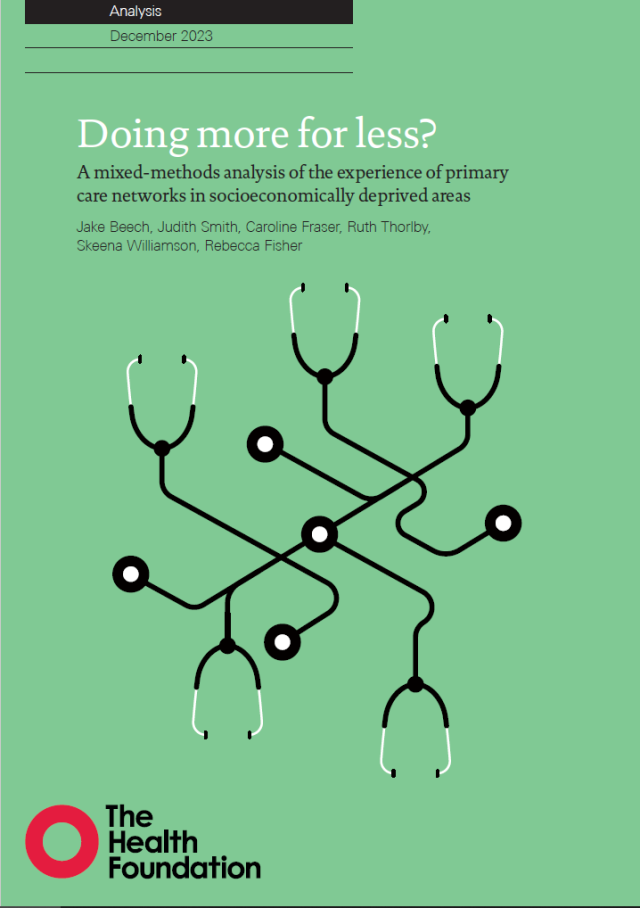Doing more for less? A mixed-methods analysis of the experience of primary care networks in socioeconomically deprived areas
December 2023

Key points
- General practice in England is under growing pressure. This is often most acute in more deprived areas, which have fewer doctors and less funding compared with practices in wealthier areas after accounting for health needs.
- Primary care networks (PCNs) were established in England in 2019, bringing together general practices into local groups to provide additional services to patients. Backed by extra funding, PCNs were expected to recruit new staff, deliver additional appointments and new services, and work to improve health and reduce health inequalities.
- This report explores the impact of national policies on PCNs in more deprived areas, using analysis of workforce and funding data, and interviews with PCN leaders about their experiences.
- PCN leaders broadly welcome additional staffing and report that PCNs have enabled better collaboration between local general practices and links with other local services. But leaders also felt funding does not reflect the additional workload of caring for patients in deprived areas. Many spoke of challenges engaging patients facing multiple social and economic barriers to good health. In some cases, recruiting and retaining PCN staff in deprived areas was difficult.
- PCNs in areas of high deprivation need funding that meets the greater needs of their populations. But with the right long-term resources, stability and organisational support, PCNs could represent an important route for addressing local health inequalities.
Reducing inequalities in health care is now a priority for the NHS and general practice, and PCNs have a major role to play in this. Given the scale of health inequalities in England and the inequities facing core general practice, it is important that decisions around how PCNs should evolve are informed by a better understanding of the experience of PCNs in deprived areas.
This analysis therefore aims to answer the following questions:
- How might the design of the current PCN contract and associated policies help or hinder PCNs in areas of high deprivation?
- Is there evidence of inequities in the distribution of PCN payments and successful recruitment of the PCN workforce?
- What is the experience of operating a PCN in an area of high deprivation?
The report concludes by setting out some of the implications of the analysis. It then shares recommendations for national policymakers and local leaders about how PCNs in areas of high deprivation could be better supported to function effectively and address health inequalities.
Cite this publication
Further reading
Work with us
We look for talented and passionate individuals as everyone at the Health Foundation has an important role to play.
View current vacanciesThe Q community
Q is an initiative connecting people with improvement expertise across the UK.
Find out more


